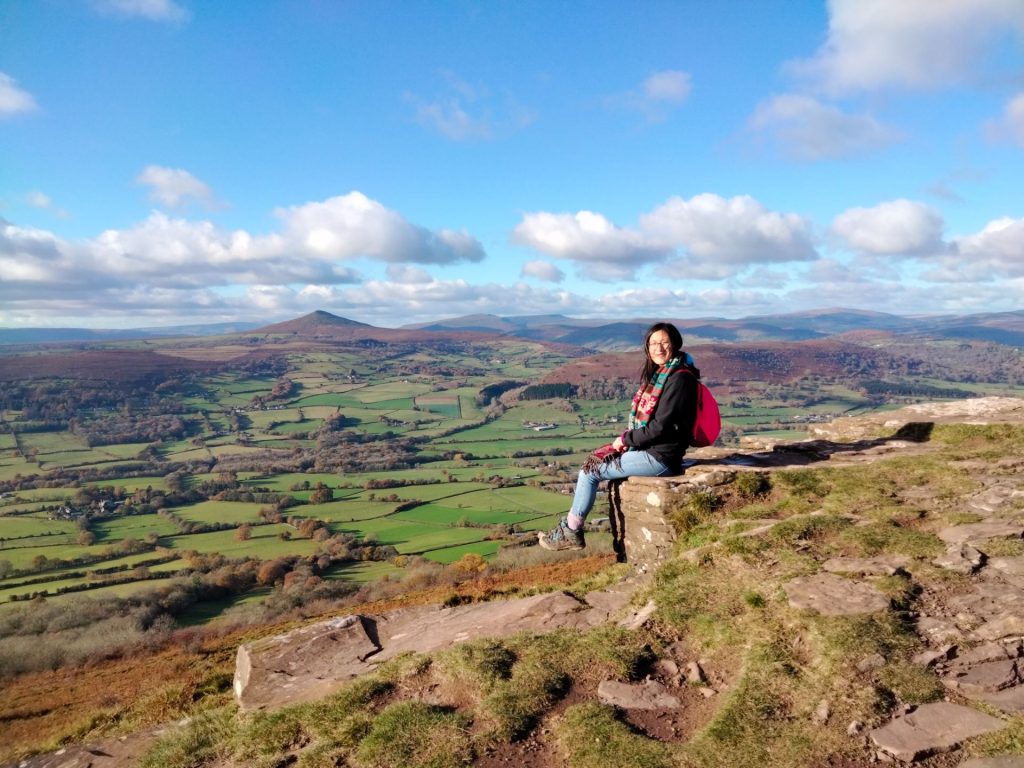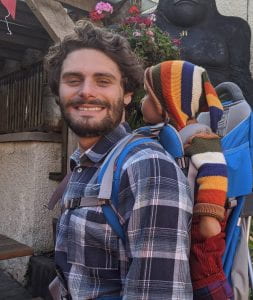Inspired by the Big Issue’s regular feature Letter to My Younger Self, we’re asking staff to think back to their own experiences as a student and tell us what advice they would give to their undergraduate selves.
This month we’re hearing from Souwoon Cho, Digital Education Developer in the Digital Education Office.

I studied International Management and French at the University of Bath. This was a four-year course where I spent the third year on a work placement in the South of France. Needless to say – coming back to the UK for my final year was a shock to the system!
Did you experience culture shock when you started university?
Yes and no. Although my elder siblings went to University, I was the only one to move into university accommodation and move “away” from home. So, I didn’t really know what to expect. I also grew up in the Welsh valleys in a Hong Kong Chinese household, so to some extent I knew it would be different. The biggest culture shock for me, was when I saw my flatmates cook rice in a saucepan then drain the rice from the water when it was cooked. I had never seen this before! And vice versa, it was the first time my housemates had seen a rice cooker, which is how I had always been taught how to cook rice!
What was your biggest failure and what did you learn from it?
My biggest failure particularly early on in my degree was not taking enough breaks from studying. I would block off long periods of time to get my head down and revise or write an essay. Then when my housemates would invite me to go for a short walk, I would often decline. I got better at this in my final year, partially because I knew it was the last year of being a student with some of my closest friends. We got in a routine of heading to campus together and scheduling coffee and lunch breaks throughout the day. This made me much more productive and more positive about my studies in general.
What are you most proud of about your time at university?
Although I loved learning French, I was terrified of speaking it. I always overthought what I said and was too afraid to make mistakes. The focus on second year was to find a work placement for the third year, which included writing the CV and cover letter in French and *gulp* having an interview in French too. I managed to secure an interview for one of the most sought-after work placements in my cohort, a meetings and marketing events coordinator role in a travel technology company in the South of France. It was my first interview over the phone, and I was home for the winter break. I remember having pieces of paper with French vocabulary stuck all over my walls as prompts – thank goodness video calls were not a thing back then!
The interview itself is still a blur to this day – but I was so pleased to receive a call from them 2 hours later offering me the placement. Although very challenging, I learnt so much and met some amazing people during that year.
What was the best bit of feedback you received?
In my second year I had to write an essay exploring the cultural differences between three countries. I had to decide on a medium or topic to compare, for example news coverage or even coffee drinking culture. After looking at the topics students had covered before, none of them took my interest. I suddenly had a thought of comparing horoscopes in the UK, France, and Spain. As I went through, I found the topic really challenging as it became apparent that there was very little academic research on horoscopes. I had many periods of scrapping the idea altogether and starting again with the well-known topics. But after speaking to the unit director, I persevered and I’m so glad I did. I received one of the highest essay marks I had received throughout my degree. Most of these marks were because I explored a unique topic which the unit director had never read before. So, the risk was worth it!
What advice would you give to your undergraduate self?
My advice would be don’t just focus on the final assessment or exam. There were many times that instead of enjoying what I was learning, I would focus on a few topics so I could “strategically” revise for the exams. Enjoy learning and don’t be afraid to explore your interests!
If you’re a staff member or postgraduate student and would like to write own letter to your undergraduate self, please get in touch: study-skills@bristol.ac.uk

